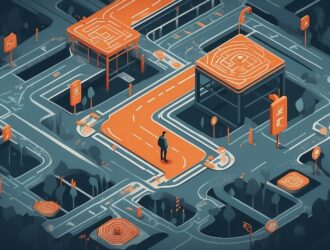Clean code, S.O.L.I.D., testability, abstractions, separation of concerns, etc.
These and other important iOS / Swift development good practices
explained simply and with memes 
Clean code, S.O.L.I.D., testability, abstractions, separation of concerns, etc.
These and other important iOS / Swift development good practices
explained simply and with memes
Recent Posts:
- 2026-02-16
How to Migrate to @Observable Without Breaking Your App
So, you've finally convinced stakeholders to raise the deployment target from iOS 15 to iOS 17 - and the first thing on your mind is @Observable. You've read the docs, watched the WWDC sessions - it looks like a straightforward swap. Replace ObservableObject, drop the @Published wrappers, change @StateObject to…
- 2026-01-12
Why Top Teams Trust AI To Maintain Development Standards And Code Quality?
If you've cared about code quality and consistency before AI-assisted coding became standard, you surely understand the pain of setting development standards in the team. It's an endless cycle: writing documentation that nobody reads, explaining conventions everyone forgets, and leaving the same code review comments for the hundredth time... Finally,…
- 2025-11-16
How to Build Scalable White-Label iOS Apps: From Multi-Target to Modular Architecture
Imagine you've just built an amazing iOS app for a restaurant. The client loves it, the users love it, their dogs love it, etc. As expected, soon enough you get a call from the client: Hey, can you make the same app for my other restaurant? Sounds simple. Just copy-paste…
- 2025-09-20
Beyond the Digital Gatekeeper: Strategies to Make Your CV ATS-Friendly
How much time have you spent staring at an empty mailbox after applying to numerous positions? "We'd like to confirm we've received your application…" and then… silence. Even an automatic rejection would have been more bearable. You've done everything right. You have relevant experience, a matching skill set, a well-maintained…
- 2025-07-24
Liskov Substitution Principle (LSP) In IOS: How To Write Trustworthy Code?
After tackling the Single Responsibility Principle and Open-Closed Principle, it's time to explore the Liskov Substitution Principle (LSP) and how it can help us write better code. At first glance, it's straightforward: if we have a component X conforming to protocol A, and another component (Y) conforming to the same…





